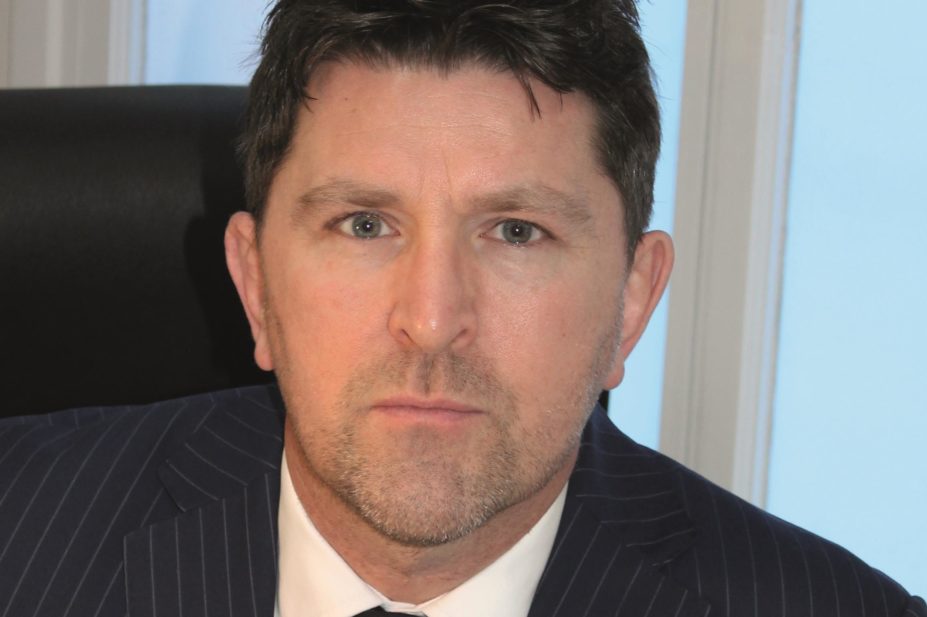
After a 30-year career combining pharmacy and academia, David Taylor believes that research is simple. “You ask a question and find out the answer,” he says. “Even today, I am still childishly excited to see the first results of a study come off the printer. My fascination with the answering of clinical conundrums has carried me through difficult times when prejudice (‘what would a pharmacist know about this subject?’) or my own technical incompetence has meant papers being rejected for publication.”
Taylor has published almost 250 research and review papers, which have been cited more than 5,000 times. He has co-authored six books — ‘The Maudsley prescribing guidelines in psychiatry’ is the most successful to date. Starting as a 14-page pamphlet in 1994, it has grown to become a 700-page encyclopaedia that in total has sold over 200,000 copies in 11 languages.
Hospital, industry and academia
Taylor, who currently works as director of pharmacy and pathology at South London and Maudsley NHS Foundation Trust, started studying at the Brighton School of Pharmacy in 1983. Later, he undertook a split pre-registration year in hospital and industry in Leicester. “I found I much preferred the somewhat frantic nature of work in hospital pharmacy and, on qualifying, spent four years as a resident pharmacist in London hospitals,” he says.
During this time he undertook a part-time MSc in clinical pharmacy, after which he became a teacher-practitioner at the School of Pharmacy, London — now part of University College London. However, he found the post “involved rather more administration than the teaching and research I was hoping to do”.
After two years, he had applied for various positions and was offered the senior clinical post at Maudsley Hospital. Having initially turned down the offer, believing that psychiatry was not for him, he was eventually persuaded to take the post by the then chief pharmacist, Adrienne Edwards. Within two years, he had taken over her role.
“Starting work at the Maudsley was, by some distance, the most important moment of my career,” Taylor reflects. “The Maudsley’s close working relationship with the Institute of Psychiatry made it a hotbed of research, inquiry and hypotheses. Here, the attitude was that if no answer to a clinical question was available then a research project should be set up to find the answer. This concept of ‘making evidence’ oneself appealed to me on several levels, not least that I should be allowed to do such a thing.”
Top clinical leader
Taylor held the role of chief pharmacist until 2000, when he was appointed to his current director role at the mental health trust. In October 2014, he was included in the Health Service Journal’s annual ‘Top 100 clinical leaders’ feature, which caught him by surprise. “When I saw that the list contained so many people whose work I have admired and respected over decades, I felt extremely honoured to be mentioned amongst them,” he says.
The article in the Health Service Journal
, a healthcare management publication, praised the extent of Taylor’s work across pharmacy and healthcare. Aside from his day job, Taylor holds posts including professor of psychopharmacology at the Institute of Pharmaceutical Science, King’s College, London; honorary professor at the Institute of Psychiatry; and editor-in-chief of Therapeutic Advances in Psychopharmacology.
He also chairs the Royal Pharmaceutical Society Faculty’s Credentialing Panel, and has lectured across Europe, Japan and Australia. His expertise has been called upon by national media outlets and television programmes including Panorama and Kilroy, as well as radio shows.
Clinical pharmacy research
Taylor says he was fortunate to have been helped by “many very eminent psychiatrists” throughout his publishing career, two of whom supervised his PhD, which he completed in 2003.
He believes the only viable future for pharmacy is for clinical work to predominate in research. “Pharmacy practice research has its place but its current domination of pharmacists’ research activities is, in my view, counterproductive,” he says.
“Pharmacists are experts in drug use; their research should reflect this by producing evidence that enhances our understanding of the effectiveness, tolerability and toxicity of medicines, ultimately for the benefit of patients.”


